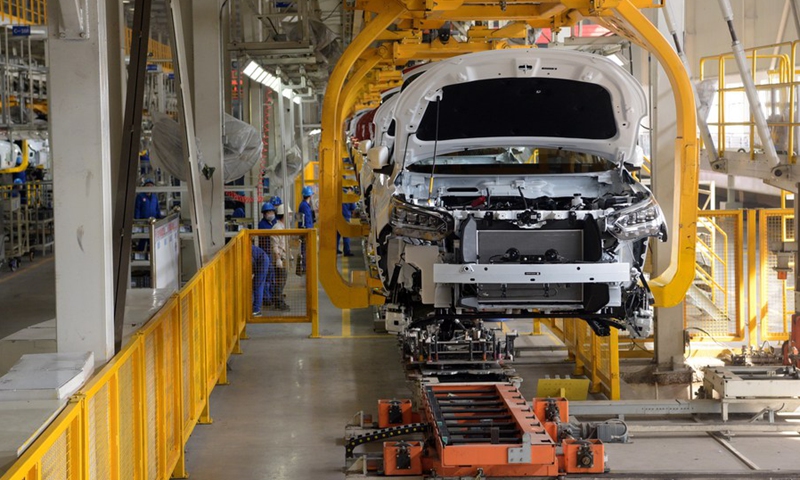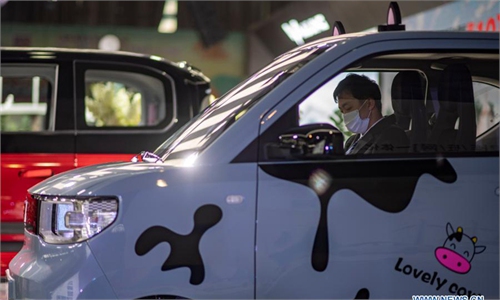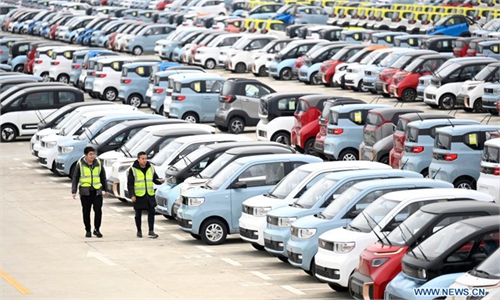
Workers work on the assembly line at a factory of vehicle manufacturer BYD Auto in Xi'an, northwest China's Shaanxi Province, Feb. 25, 2020.(Photo: Xinhua)
China's automobile shares rose on Wednesday as the Ministry of Commerce (MOFCOM) encouraged domestic car-makers to step up new-energy vehicle (NEV) exports to Russia in addition to improving engagement on NEV infrastructure.
Jiangling Motors soared by daily limit of 10 percent to 20.70 yuan ($3.2) and Haima Motor also rose by the daily limit to 7.80 yuan. Beiqi Foton Motor was up by 9.92 percent to close at 4.21 yuan.
MOFCOM posted a research report addressing the Russian NEV market on its website. Due to cold weather, the electric car market in Russia is not well developed, with ownership at around 6,300 units in 2020, or a penetration rate of merely 0.01 percent. Meanwhile, the country's electric car infrastructure remains in its nascent stage, and the capital city Moscow plans to expand the number of charging pillars five-fold to 600 by 2023.
Chinese automakers are considering up-scaling NEV exports to Russia and boosting marketing and promotion in the country to gradually expand their shares in the Russian market.
Also, they could discuss NEV infrastructure cooperation with local market players, including the construction of charging facilities, optimization of pipeline networks, and smart services to share new opportunities in the NEV market, the ministry said.
Li Xin, director of the Center for Russian and Central Asia Studies at the Shanghai Institutes for International Studies, told the Global Times on Wednesday that now is a good time for Chinese NEV brands to enter the Russian market, which is seeking to expand the emerging sector.
He said that the high- and new-technology sector has been a key area of China-Russia cooperation in recent years in the face of rising technological and trade restrictions from the US.
"In this sector, China's advanced NEV technologies would supplement Russia's lack of state-of-the-art technologies," he said.
The Russian government has formulated an industry blueprint encouraging the development of the sector, aiming to allocate about 65 billion rubles ($1 billion) a year to develop self-driving, hybrid power and electric technologies. In addition, it provides subsidies of up to 25 percent for consumers purchasing environmentally friendly vehicles, including electric cars.
China's development of NEVs has raced ahead of many of the world's major economies. Data from the China Association of Automobile Manufacturers showed that the country's output and sales of NEVs both exceeded 1.2 million units in the first half of the year.
Global Times


